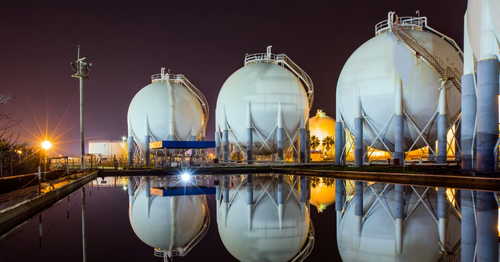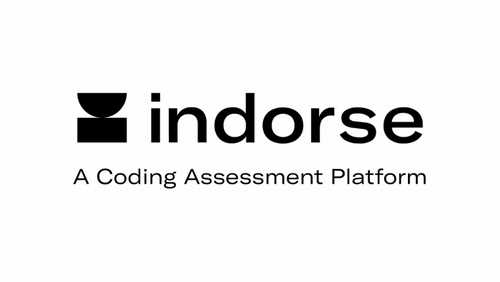Binance and India-based bitcoin exchange WazirX – which Binance acquired last November – announced Tuesday their new «Blockchain for India» fund would incubate and invest in local startups that contribute to the creation of a sophisticated cryptocurrency and blockchain ecosystem for the subcontinent.
Binance and its local subsidiary have set up a new fund to reinvigorate growth in blockchain startups in India following a Supreme Court decision to allow banks to service crypto firms.
The new Binance-backed fund, which will make investments in both equity and token acquisitions, is especially interested in initiatives that help develop a full crypto market infrastructure for India, according to a press release. That could include fiat gateways, remittance platforms, stablecoin solutions and new applications for decentralized finance (DeFi).
The fund will make investments anywhere between $100,000 and $5 million.
Highlighting that India had one of the largest developer and software engineering talent pools in the world, WazirX founder and CEO Nischal Shetty said in a statement that the new fund would make full use of the «incredible potential that the Indian blockchain ecosystem has to offer.»
The new fund would be open to collaborating and co-investing with other local funds sharing the same goals, Shetty said. There will also be an initiative for supporting blockchain development and incubator programs in Indian universities.
Rival Mumbai-based exchange CoinDCX announced last week it had pledged $3.1 million towards an education campaign to promote cryptocurrency adoption in India, according to a press release.

Argentina’s Gas Regulator Greenlights Industry Blockchain Built With RSK Tech
Argentina’s national gas regulator has given Gasnor, a natural gas distributor for two million residents, approval to pilot a smart contract-based certification platform.

Gasnet, a permissioned blockchain platform from IOV Labs and software builder Grupo Sabra, was launched Wednesday with approval from regulator Enargas, according to the firms involved. Running on an enterprise version of the RSK Smart Contract Network, Gasnet is designed to secure and speed Argentina’s chronically delayed gas certification processes.
“When you want to certify a new gas connection for a home or a company today you need to send many documents”, said Grupo Sabra co-founder Pedro Perrota. From technician-consumer agreements to certification paperwork and other documentation, “all those things today in Argentina take a lot of time” to process, Perrota said. Up to three months, in fact.
Not so under Gasnet. In the now-operational consortium network, certification documents and transaction details zip between Gasnor and Enargas, each of whom run a network node. That increases visibility and smooths out otherwise crippling delays, Perrota says, allowing technicians to ultimately bring consumer’s gas services online faster.
“They are basically using the blockchain to certify the different steps”, said IOV Labs CEO Diego Gutierrez. “They’re giving private keys to each one of the professionals involved in the process, so they do the certification work using this shared system.”
Certification is just the beginning, though. IOV Labs and Grupo Sabra say Gasnet’s shared ecosystem can facilitate any number of services. Technician’s credentials, for example, are crucially important, given the dangerous nature of natural gas infrastructure.
But what of an unscrupulous contractor who flees a checkered safety history in Buenos Aires and sets up shop instead in, say, the far smaller town of Salta in the country’s north? Under the current system, his track record does not necessarily follow him north, but with Gasnet it would.
“When you have a common database, everyone can see your track record”, Pedro Perrota said.
Gasnet has even bigger goals, too. It wants to become the common database for Argentina’s entire gas distribution ecosystem, for all nine regulated companies, Perrota and Gutierrez said.
ASX Sees Industry Benefits Arising From Blockchain Upgrade as July Tests Approach
The chief of the Australian Securities Exchange (ASX) said the company’s approaching shift to blockchain tech could bring opportunities to the wider securities industry.In a results call for H1 2020 Thursday, reported by ZDNet, ASX CEO Dominic Stevens said: «We’re very excited about the long-term benefits this can bring to clearing and settlement specifically, and to the efficiency of the securities industry in Australia generally,» Stevens said.
Specifically, Stevens was discussing the ASX’s development of a blockchain-based replacement for its now-aging clearing system called CHESS. Work has been ongoing for several years in partnership with U.S. firm Digital Asset (DA), which is working on the blockchain underpinnings of the platform.
According to ZDNet, industry testing is now set for July 2020. DA said that process was expected to take about a year when it received backing from the ASX in its $35 million in Series C financing in December 2019.
According to Stevens, the opportunities the digital ledgers bring to securities clearing are «being recognized by customers and third parties and these opportunities are developing in a range of areas including risk management and process automation.»
With ASX taking an early lead when it comes to rebuilding with blockchain, other industry players have been seeking assistance from the bourse, its CEO said. However, while that potentially offers the firm new business options, it’s leaving that option for further down the road as the primary business is «very, very strong.»
Indeed, in its results call, the ASX disclosed an AU$250 million (US$68 million) after-tax profit from revenue of AU$546 million (US$367), as per an earlier ZDNet report.
Aside from its DLT work, ASX is looking at other new technologies to redesign itself for the digital age. «We’re actually transforming our entire technology stack from the operational databases and communications infrastructure we use to the way we deploy distributed ledger, cloud, big data, AI tools,» said Stevens.

